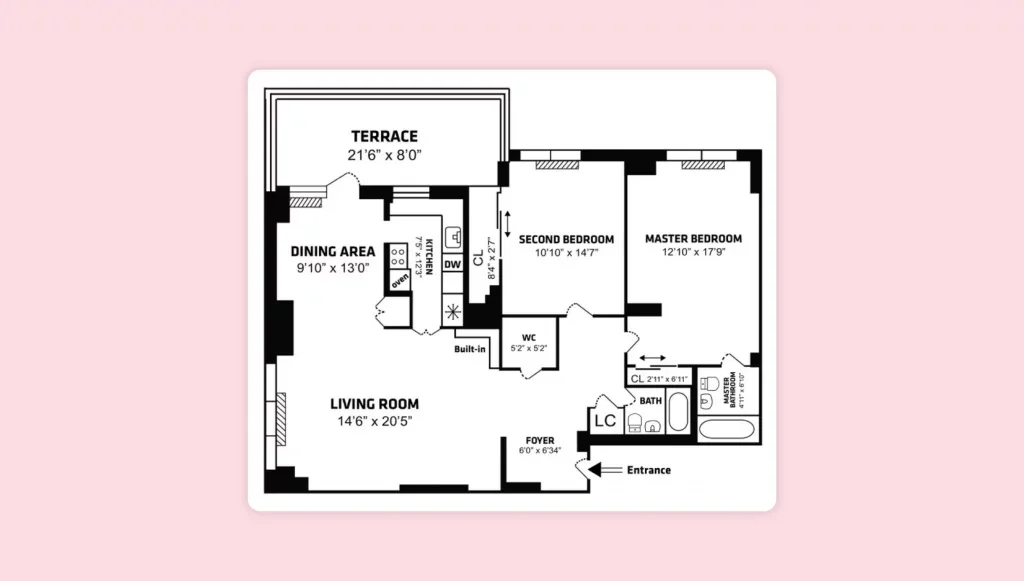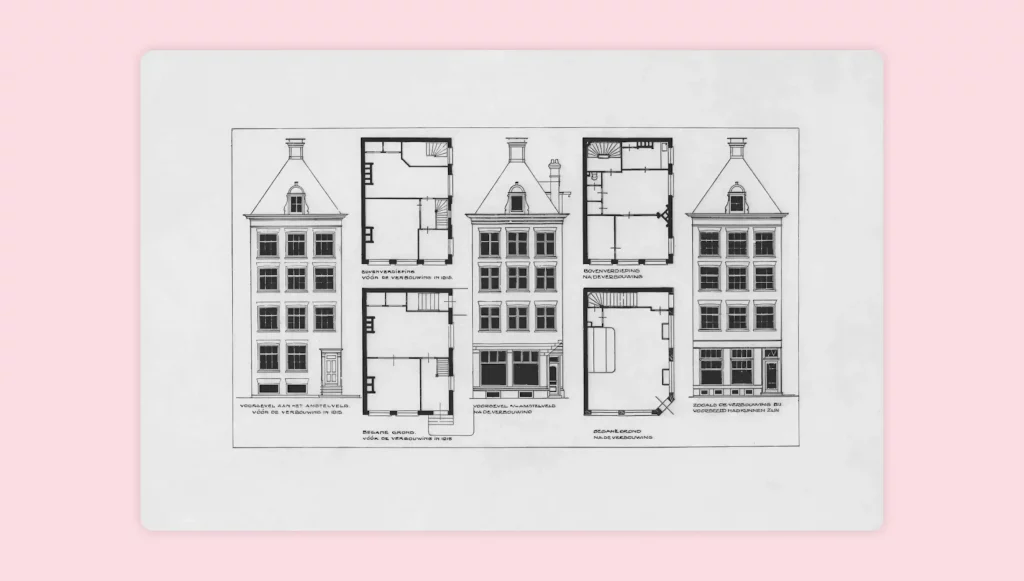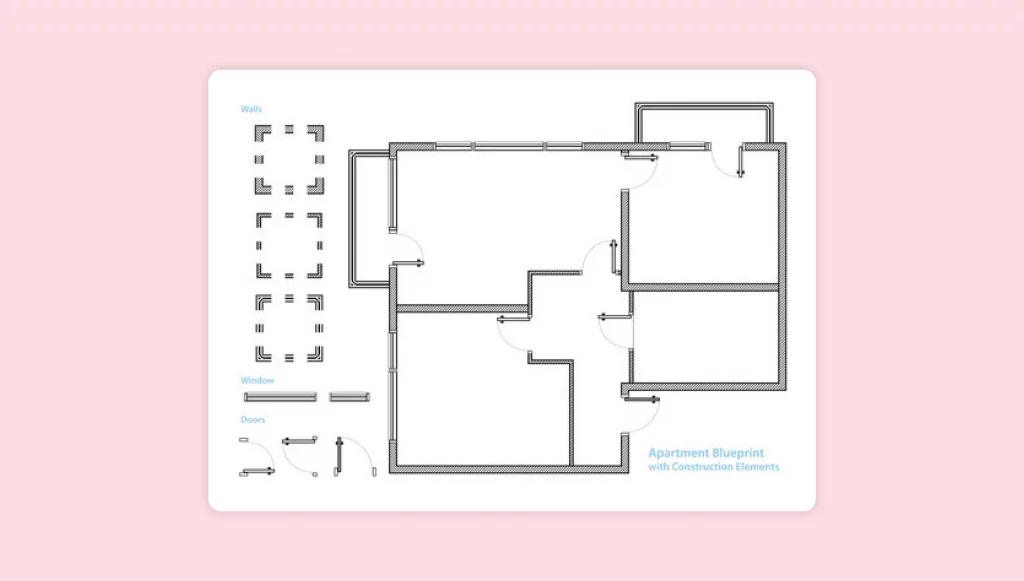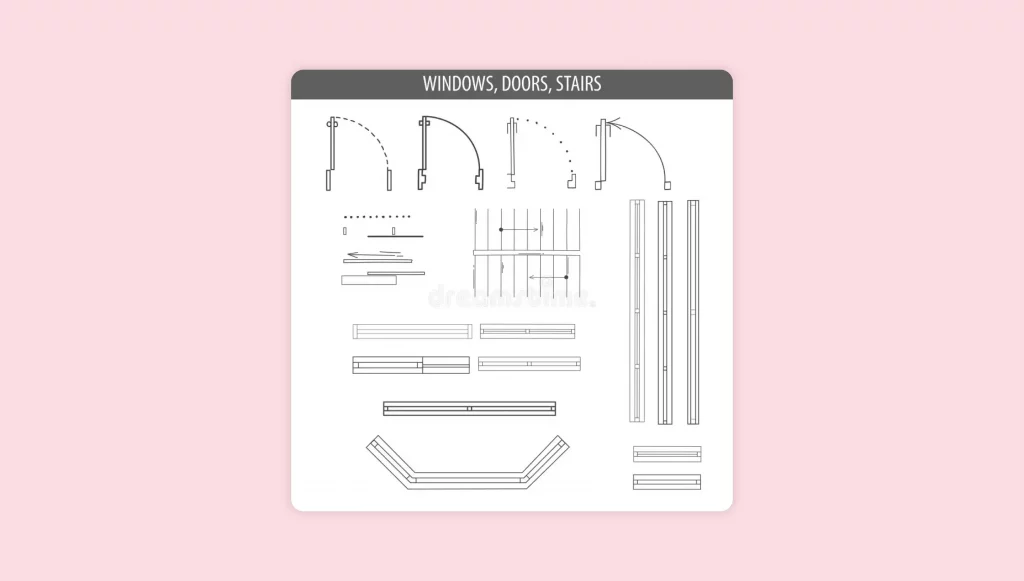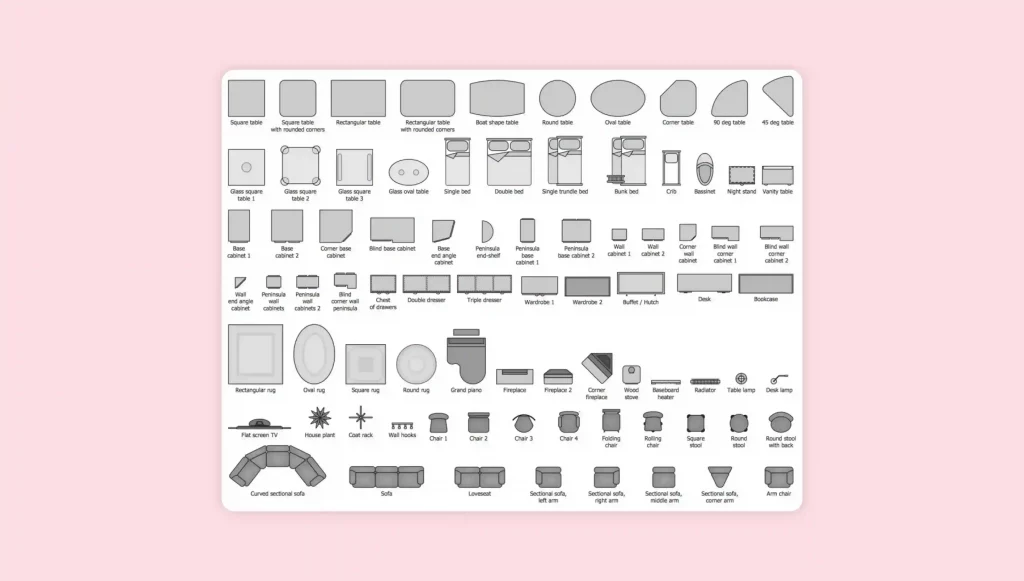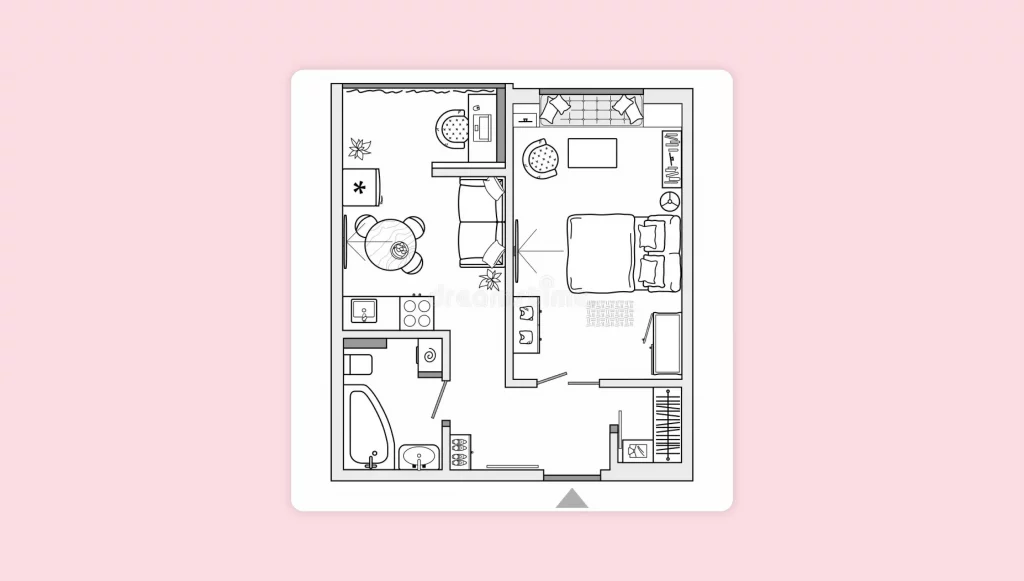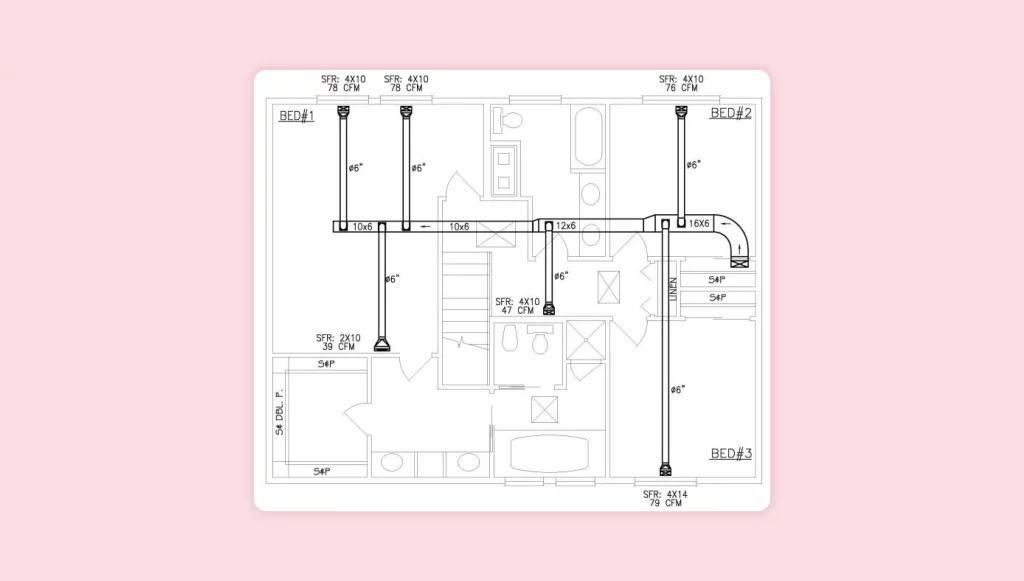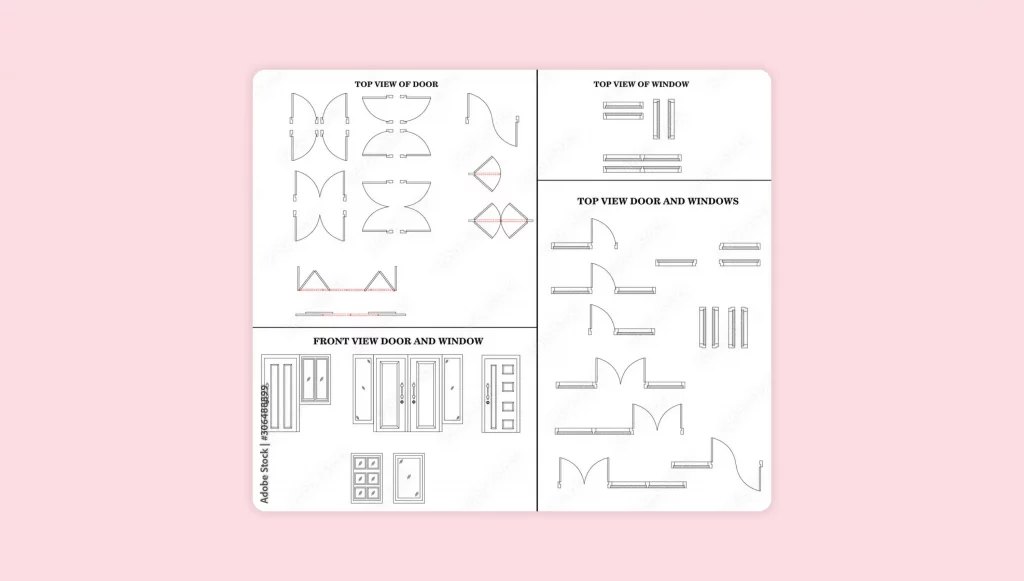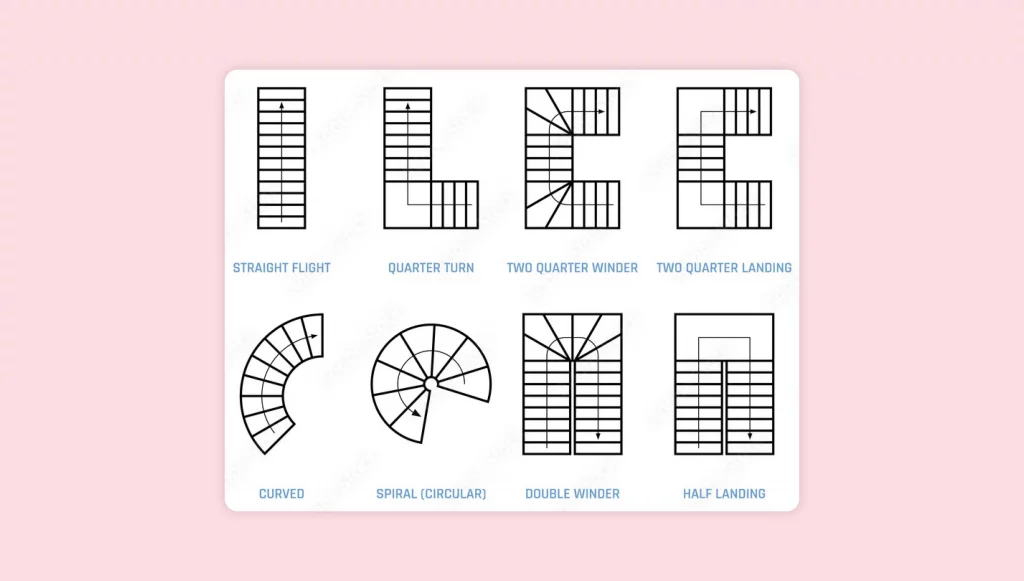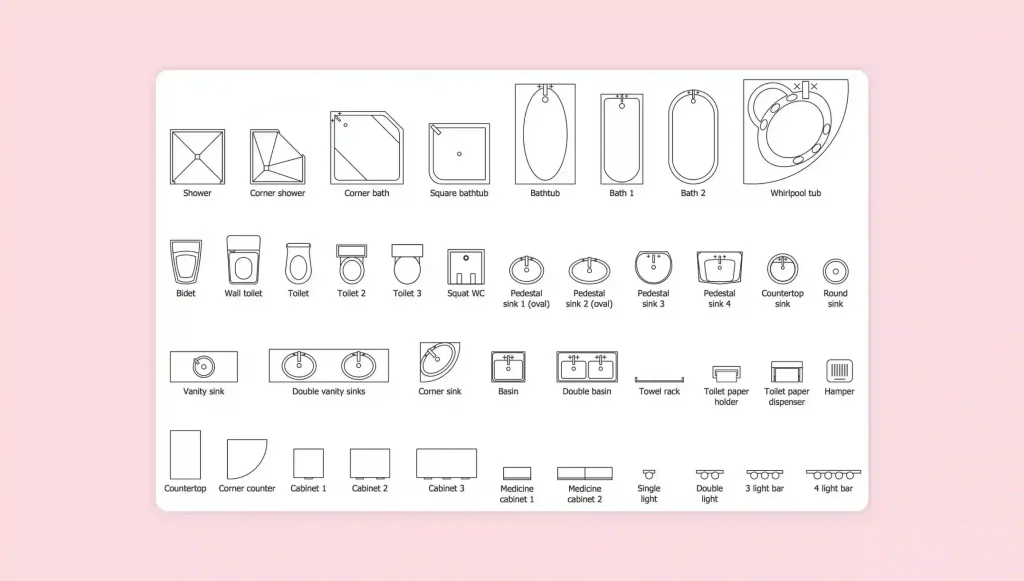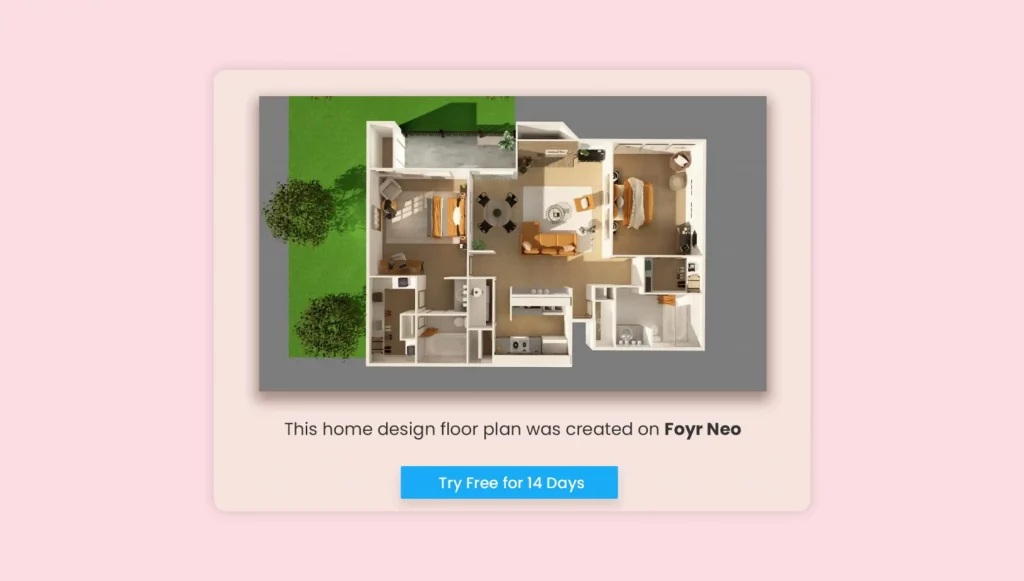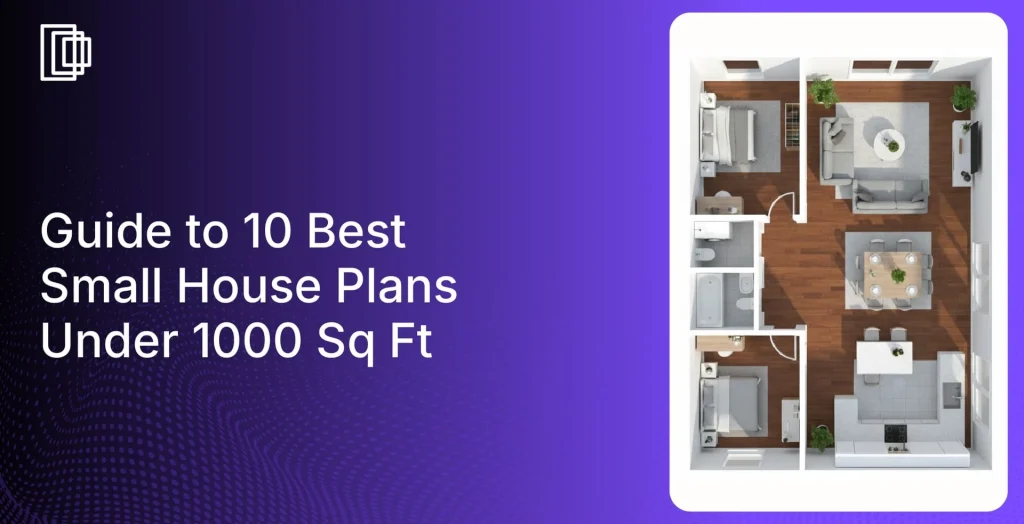Architectural drawings present a unique language of lines and symbols. For anyone building, renovating, or furnishing a home, these plans are the essential starting point. Learning to interpret them unlocks a true understanding of a space.
A floor plan offers a bird’s-eye view, a detailed map of a home’s potential. Understanding how to read a floor plan will help you transform abstract diagrams into a tangible vision of rooms, flow, and functionality.
Follow the steps discussed in this guide to decode layouts and recognize key elements with confidence. Let’s get started.
What is a Floor Plan and Why is it Important?
A floor plan is a scaled 2D diagram viewed from above that represents a room or building’s layout, including bedrooms, bathrooms, and other features like garages. Each area is labelled with its purpose, like Master Bedroom or Kitchen, often with measurements. Unlike site plans, which show the structure’s location and surroundings, floor plans help visualize a space’s details for furniture placement and overall layout.
Floor plans are important as they work as the primary tool for visualizing how a space will function. They help designers and homeowners plan furniture placement, understand the flow of traffic between rooms, and assess the overall usability of a layout before any construction or decorating begins. By allocating square footage to different areas, a floor plan provides a clear blueprint that guides the entire design and building process.
Read also – How To Draw A Floor Plan?
How to Read Floor Plans: 9 Simple Steps
Learning how to read floor plans is a process of understanding its different components one by one. Follow these nine steps to interpret any architectural drawing and gain a clear understanding of the space.
1. Check the Scale and Measurements
First, find the scale to understand the relationship between the drawing and the actual building. This information is usually in the title block or legend.
A common scale on residential floor plans is 1/4″ = 1′, meaning every quarter-inch on the paper represents one foot in the real world. To find a room’s size, look for measurement lines, which are arrows pointing to the dimensions written in feet and inches, such as “12′-0″ x 15′-6″”.
2. Determine the Orientation
Look for a compass icon or an arrow with an “N” on it.
This shows which direction is north and helps you understand how natural light will travel through the home during the day.
For example, a living room with south-facing windows will get plenty of sunlight. If a compass isn’t on the plan, you can check the site plan for this information.
3. Identify the Walls
Walls are shown as parallel solid lines and form the boundaries of each room.
Pay attention to their thickness; exterior walls are typically drawn with thicker lines than interior walls. It’s also crucial to identify the load-bearing walls, as these structural supports cannot be moved, while thinner partition walls often can be.
4. Locate Doors and Windows
Doors and windows are breaks in the walls.
- Doors: A door is represented by a thin rectangle showing the door itself, with an arc that illustrates which way the door swings. This is vital for checking if a door’s swing will be obstructed by fixtures or other doors.
- Windows: Windows are shown as breaks in the wall crossed by thin lines representing the glass and frame. Their placement and size indicate how much natural light a room will receive.
Read also – blueprint maker
5. Find the Stairs
Stairs are depicted as a series of rectangles, representing the individual steps.
Crucially, an arrow will run alongside or through the rectangles, pointing in the direction of ascent. This helps you understand how different floors are connected and where the staircases are located within the home.
6. Recognize Fixtures and Appliances
Floor plan symbols show permanent fixtures, giving you a clear idea of a room’s function. You’ll see outlines for kitchen sinks, stoves, refrigerators, and islands. In bathrooms, look for symbols for the toilet, sink, shower, and bathtub. These are drawn to an approximate scale to show how they fit in the space.
7. Analyze the Room Layout
Look at the labels for each room, like “Living Room” or “Bedroom 2,” to understand the intended purpose of each space. Assess the relationship between rooms. For example, is the kitchen conveniently located next to the dining area? Considering the size and placement of each room helps you understand the home’s circulation and overall convenience.
8. Consider Furniture Placement
While not all floor plans include furniture, those that do offer valuable insight. Indicative furniture placement helps you visualize the space better, assess if rooms feel cramped or spacious, and understand traffic flow around objects. It gives you a real-life estimation of what living in the house will feel like.
9. Review the Electrical and HVAC Plans
For a complete overview, look for separate electrical layout and HVAC (heating, ventilation, and air conditioning) plans. The electrical plan uses standard symbols to show the locations of outlets, switches, and light fixtures, which is crucial for ensuring proper illumination.
The HVAC plan details the placement of vents, air returns, and the thermostat. Reviewing these supplementary drawings is essential to avoid costly revisions and ensure the home’s power and climate systems are designed effectively.
Bonus Tip: Check for Notes and a Legend
Look for a legend or notes section on the drawing. This key explains any non-standard symbols or abbreviations used in the plan. Abbreviations like ‘W.C.’ for water closet (toilet) or ‘C.L.’ for closet will be defined here. The notes may also contain important specifications about materials or construction details.
Read also – How To Design A Home?
What are the Common Elements of a Floor Plan?
Here are the essential symbols and key architectural elements you must look for to gain a detailed understanding of any layout.
1. Walls
Construction drawings will show you both interior and exterior walls. They are shown using a set of parallel solid lines on either side. Being able to understand how the walls have been designed and placed will help you plan the real layout of the house. For this, you should look carefully at the types of walls and where they are located. The bearing walls carry the load and cannot be tampered with. Knowing where the partition walls are located will help you know how structural changes can be made easily without compromising the foundational elements of the building.
Read also – 20 Best Wall Decor Ideas
2. Windows and Doors
Every floor plan will tell you where the doors and windows have been intended.
- Windows: A small break in the wall, followed by thin lines along the width, will let you know that there is a window in the space demarcated.
- Doors: When a door is intended in the space, you will notice a break in the wall. The doors will be shown at right angles to the wall, with a small arc that lets you know which way the door swings. The door swing is as important as the door dimensions and its proportion with the rest of the room.
Read also – 8 Best Window Treatment Ideas
3. Stairs
Stairs are shown as a row of rectangles that may also have the appearance of parallel lines. The main feature of the symbol is the arrow that shows you whether the stairs lead up or down. The stairs on a house plan help you understand in what area of the house they will be. Most plans will indicate the size and dimensions of each stair and also show you if there is a handrail that offers support.
Read also – 14 Different Types of Staircases
Read also – Foyr Neo 2D and 3D Floor Plan Software
4. Fixtures and Appliances
Several fixtures may be incorporated into the drawing. You can also see fixtures like a sink, shower, bathtub, stove, or toilet drawn to an approximation of its size. Floor plans often depict stationary appliances such as sinks, kitchen islands, and built-in fixtures, which provide a clear visualization of the space’s intended use and layout.
This includes identifying common appliance symbols, which might use abbreviations like WH for water heater and D for dryer.
Read also – 10 Best Free Furniture Design Software
5. The Compass Mark and Orientation
A sign of a compass on the floor plan will point to the north. This helps understand how light travels through the space and helps optimize its use in structural and design themes. In case you don’t see it on the floor plan, ensure you check the construction plan to check for directions.
Read also – Focal Point in Interior Design
6. Size and Measurements
A right floor plan provides specific, detailed measurements for each room, typically described in feet and inches to convey the overall scale of the new home. To read measurements on a floor plan, look for lines or arrows next to the walls, which indicate the wall’s length, such as 14-6, representing a wall that is 14 feet and 6 inches long. Size is critical when planning the general composition and designing movable elements to create an illusion of space.
Read also – The Average Bedroom Size for Standard and Master Bedroom
7. Ceiling Features (Beams and Height)
While not always standard, information about the ceiling can sometimes be found on floor plans. Ceiling beams are not part of a conventional floor plan, however, you can look at structural drawings or even ceiling plans. A beam is usually shown as a dashed line in a ceiling plan. Dashed lines in floor plans often indicate ceiling transitions, such as areas where the height of the ceiling is raised for aesthetic appeal.
Read also – 6 Best Studio Apartment Layout Ideas and Floor Plan Ideas
What Can A Floor Plan Tell You (and What It Can’t)?
A floor plan is an invaluable resource, but it’s important to understand its scope. These drawings provide a wealth of information while also having certain limitations.
A floor plan gives you a bird’s-eye view that helps you understand the home’s layout and flow. From it, you can:
- Imagine the look and feel of each room.
- Determine the size and location of doors and windows.
- Identify any lack of natural light due to poor room placement.
- Understand circulation patterns and how people will move through the home.
- See how each room relates to the next, which is vital for design cohesion.
However, even if you know how to read a floor plan perfectly, there is some information you are unlikely to gain from it alone:
- It cannot tell you the height of ceilings, doors, or windows.
- Details about exterior finishes and materials are not included.
- You won’t get information on exterior elevations or the home’s outside appearance.
For these details, you would need to look at other architectural drawings, such as elevation and section plans.
Read also – 19 Floor Plan Mistakes To Avoid While Designing Your Floor Plan
Read also – 10 Best Floor Plan Creator
5 Tips for Interpreting Complex Floor Plans
Here are five practical tips to help you better understand complex floor plans:
- A floor plan is a scaled two-dimensional diagram, showing every space within a home, including rooms like bedrooms, bathrooms, and living areas, to help visualize the layout.
- To effectively interpret a complex floor plan, begin by mentally walking through the drawing, starting from the front door and noting the sequence of spaces and their functions.
- Standard features in detailed floor plans include the shape and scale of the layout, as well as the placement of doors, windows, and walls, which are essential for understanding traffic flow and space use.
- Familiarizing yourself with the legend present in floor plans, which explains the symbols and abbreviations used, is crucial for accurately interpreting the details represented in the drawings.
- Understanding that a fully featured floor plan contains critical information such as total area, room dimensions, and the relationship between different spaces can help simplify complex layouts during review.
What Are the Practical Applications of Floor Plans in Residential Design?
Let’s explore the different applications of floor plans in residential design projects:
- Floor plans serve as essential tools in interior design and architecture, allowing homeowners, designers, and builders to visualize and effectively plan spaces.
- Architectural drawings included in floor plans detail features such as wall placements, room sizes, and stairway locations, providing a comprehensive view of the structures layout.
- A well-drafted floor plan allocates square footage to various spaces, making it possible to determine the functionality and flow of living areas within a home.
- It include measurements that reveal critical insights about room areas, ceiling heights, window dimensions, and overall spatial relationships within a building.
- The creation of a floor plan often marks the beginning of a design process, where collaboration between clients and designers leads to customized residential solutions.
Try Foyr to Create Your Floor Plan
Now that you can read a floor plan, why not create one? Foyr Neo is an intuitive, powerful software that transforms your design process, whether you are a professional or just starting.
Foyr Neo is designed to be quicker than other professional design software, freeing you up to focus on creativity. You can easily draw a 2D floor plan and instantly convert it into a 3D model to take a virtual tour of your design. With a library of over 60,000 pre-modeled products, you can drag and drop furniture directly into your layout to see how it fits.
Foyr Neo creates renders in the background as you work, allowing you to visualize your dream home in real-time.
Try Foyr’s 14-day free trial today and experience the difference professional-grade tools make in your workflow and client presentations.
Read also – 20 Best Floor Plan Apps To Create Your Floor Plans
FAQs
What do the symbols on blueprints mean?
Symbols on blueprints and floor plans are a standardized shorthand for architectural elements. Common symbols represent features like doors, windows, stairs, electrical outlets, and plumbing fixtures such as sinks and toilets. For example, a “WC” stands for water closet, or toilet, and a “D” might stand for a door or a dryer. A legend is typically included on the drawings to define each specific symbol and abbreviation used.
How do I read floor plan measurements?
To read measurements on a floor plan, look for dimension lines that run parallel to a wall. The number on that line, often in a feet-and-inches format like ’14’-6″‘, indicates the wall’s length. Room dimensions are typically presented in a width-by-length format (e.g., 10′-0″ x 12’-0″). You may also see numbers like ‘hp’ next to a window, which indicates the height of the window sill from the floor.
How do you find direction on a floor plan?
To find the direction, you must locate the north arrow or compass rose on the drawing. This symbol explicitly points to the true north, which allows you to understand the orientation of the entire building. This is crucial for determining how natural sunlight will affect different rooms throughout the day. If it’s not on the floor plan itself, this directional symbol is almost always included on the broader site plan.
What is the normal scale for a floor plan?
While scales can vary, the most common architectural scale for residential floor plans in the United States is 1/4″ = 1′-0″. This means every quarter-inch on the drawing represents one full foot of actual space. For larger commercial buildings or site plans, smaller scales like 1/8″ = 1′-0″ or 1/16″ = 1′-0″ are used to fit the entire drawing on the page. The scale is always explicitly stated on the document.
How do I choose a floor plan?
Choosing a floor plan requires balancing your lifestyle needs with the space’s functionality. Start by considering your daily routines and how you want to move between rooms. Evaluate the size and layout of key areas like the kitchen and living room. Think about storage, privacy, and how the plan accommodates your family’s needs. A good choice supports your lifestyle, has a logical flow, and feels comfortable to you.
How do I evaluate a floor plan?
To properly evaluate a floor plan, conduct a mental walk-through. Imagine moving from room to room. Assess the traffic flow and determine if there are any bottlenecks. Is the kitchen easily accessible from the garage? Check the placement of doors and windows and consider how furniture might be arranged. By visualizing daily activities within the layout, you can effectively judge its overall functionality, convenience, and comfort before making any commitments.
How to read floor plans for beginners?
For a beginner, the best way to start is by learning the most basic symbols. Focus on identifying walls (thick parallel lines), doors (a line with an arc showing its swing), and windows (a break in the wall with thin lines). Next, find the scale to understand the size of the rooms. Once you are comfortable with these fundamentals, you can move on to recognizing fixtures, appliances, and more complex architectural details.
What are the key details of a floor plan?
A floor plan must include several key details to be useful. This consists of a clear layout of all rooms with their intended purpose labeled, the location and type of walls, and the placement and size of all doors and windows. Critically, it must also feature precise dimensions for each room and the overall structure, along with the scale to which it was drawn. These elements together provide a comprehensive, top-down view of a building’s layout.
How do I measure a floor plan?
To measure a floor plan, first look for the explicit dimensions printed on it. These are numbers like “12′-6″” on dimension lines that give you the exact size of a room or wall. For any unmarked distances, you must use the plan’s scale (e.g., 1/4″ = 1′). Using a scale ruler, measure the line on the paper and then use the indicated scale to convert that measurement into its actual real-world size.
What are the four types of floor plans?
While there are many variations, floor plans are often categorized into four main layout types. The Open Floor Plan features large, combined spaces with minimal walls, like a kitchen and living room flowing together. A Closed or Traditional Floor Plan has distinct, separate rooms defined by walls and doorways. A Half-Open Plan offers a hybrid approach, while an Atrium Plan arranges rooms around a central open-air or glass-enclosed courtyard.
How do you read floor plan measurements?
Floor plan measurements are indicated with dimension lines parallel to walls. Numbers show lengths in feet and inches, such as 12′-0″ x 15′-6″. These help you calculate room sizes and understand space allocation, vital for any floor plan reading guide.
What do the numbers mean on a floor plan?
Numbers on a floor plan represent room dimensions, wall lengths, or ceiling heights. They are typically written alongside arrows or dimension lines, for example, 10′-6″. These measurements guide accurate furniture placement and help visualize real proportions.
How to read a residential plot plan?
A residential plot plan shows property boundaries, building footprint, utilities, and landscape details. Reading it involves checking scale, orientation, and lot size. Combined with a step-by-step guide to read the floor plan, it ensures proper design alignment with land use.
How to find direction in floor plan?
Most floor plans feature a compass rose or a north arrow. This indicates orientation and helps assess sunlight flow throughout the day. For example, south-facing windows provide more light. If absent, check the broader site plan.




